CUPE 2278, the graduate teaching assistants union at the University of British Columbia, is taking a strike vote on Thursday, 22 March. The bargaining environment for the GTA union has been awful for a number of years. The current contract dates to 2005 and recent attempts to bargain with UBC have been frustrated by the BC Public Sector Employers’ Council’s “net zero mandate” and the university’s unwillingness to grant the level of respect the GTAs deserve. The union is asking if it is “okay to let an employer profit off your work at a comparatively lower cost and then balance its budget out of your pocket by passing on its expenses?”
The 2005 contract was rolled over in the last round but signs suggest that CUPE 2278 will not roll over again under conditions of exploitation. The union was forced to a full scale strike in the spring of 2003– a successful strike that reminded students, faculty members, and administrators just how vital GTAs are to the functioning of the University. As was the case in 2003, CUPE 2278 is currently preparing research-based information for the UBC community and will likely have to counter the employer’s aggressive campaign to malign the GTAs and misinform the campus.

 Follow
Follow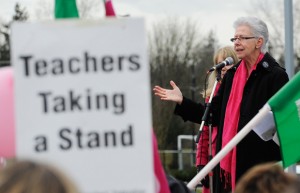
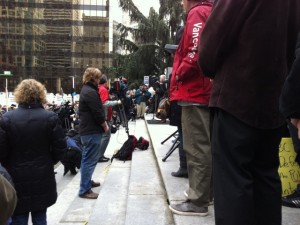
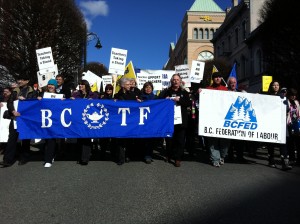
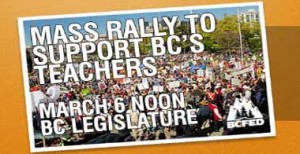
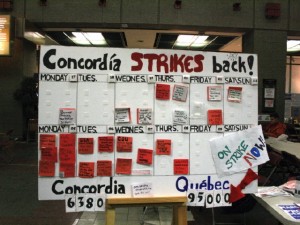
Net Zero Workers
There is a long history of wage freezes for workers that amount to wage cuts against rapidly rising costs of living. There was a time when governments were interested in supporting unions defending wages as a base for fair compensation for the work and a wage increase to maintain a decent standard of living against rising costs. In bad times, unions and employers could give and in depressions the unemployed ranks grow, families collapse, and businesses fold. Currently, governments are finessing to have it both ways. A psychology of governing parties is to assure consumers and investors that the economy is always looking up while convincing workers that the coffers are empty and the economy is recessing. While Athens burns business analysts comment daily that the markets are gaining lost ground. ‘Economic growth is on the horizon while we are pressed to freeze wages and put our fiscal house in order.’ Mixed messages for the consumer as worker, now the net zero worker.
“Net zero,” newspeak for wage freeze, was introduced as a mantra in about 2002 and repeated by the Public Sector Employers’ Council (PSEC) in British Columbia from 2008 to this current point. In 2010 the “net zero mandate” was reinforced in BC government or PSEC policy. Public sector workers were again net zero workers. The BCTF rallied hard against this and are standing up again to pool together all unions, as the governing party in BC again designated teachers as net zero workers. Let them bargain, let them mediate, Minister of Education George Abbott insisted in legislative debate on 12 March, as long as “all of that is within the context of net zero.”
Thirty years ago, top executive salaries were about 15 times that of the average worker’s. Now, those executive salaries are 75 times that of the worker’s. It’s increasingly difficult to accept one’s fate as a net zero worker in the face of skyrocketing executive salaries and lawless mismanagement. Of course, things might change should the net zero worker threaten to become a net zero consumer. Net zero spending was once called a boycott.
10 Comments
Posted in BC Education, Commentary, Employment rights, Government, Politics, Solidarity, Strikes & Labor Disputes, Unions, Working conditions
Tagged Economic Trends, Government, Working conditions